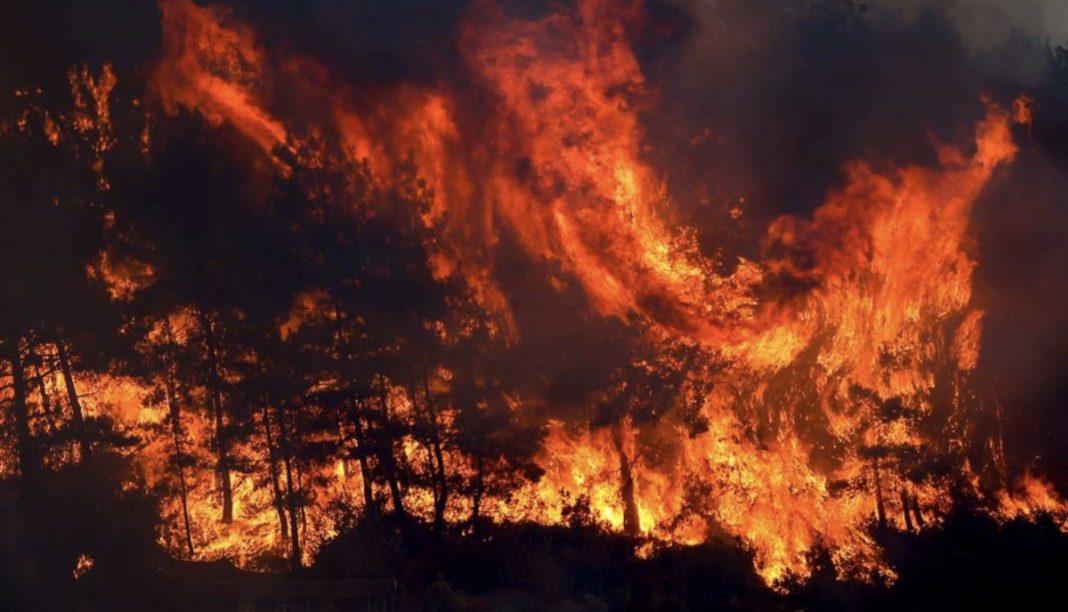By Janet Ekstract
NEW YORK (TURKISH JOURNAL) – UN Secretary-General Antonio Guterres issued a statement in a press conference on Monday about the condition of global climate change, stating: “The alarm bells are deafening, and the evidence is irrefutable; greenhouse gas emissions from fossil fuel burning and deforestation are choking the planet and putting billions of people at immediate risk.”. Guterres made the statement based on his review of the summary of policymakers for the Working Group 1 Report, contribution to the Sixth Assessment Report from the Intergovernmental Panel On Climate Change (IPCC) entitled Climate Change 2021: The Physical Science Basis that includes decades of studies on the impact of climate change on the planet.
Meanwhile, the leader for the 26th UN Climate Change Conference (COP26), British minister Alok Sharma, echoed Guterres when he told British newspaper The Observer: “This is going to be the strongest warning yet that human behavior is alarmingly accelerating global warming and this is why COP26 has to be the moment we get this right. We can’t afford to waste two years, five years, 10 years – this is the moment.”. Sharma made those remarks on Sunday a day ahead of the IPCC Report results that describes the impact and a comprehensive view of human-induced climate change.
The IPCC as the global scientific authority on climate change, warned in 2018 in a special report that the cutoff date for drastically reducing dependence on fossil fuel is 2030. As Guterres reiterated in his statement, the overall goal in reducing global warming is to carefully monitor the current 1.2 degrees Celsius of earth warming so it doesn’t reach above the goal of 1.5 degrees Celsius. The secretary-general pointed out that “every fraction of a degree counts”. Both Sharma and Guterres emphasized that past and current severe wildfires, droughts and flooding are a direct result of these temperature changes brought about by an exceedingly high level of “greenhouse gas concentrations.”
Sharma reiterated: “You’re seeing on a daily basis what is happening across the world.”. He highlighted that the year 2020 was the “hottest year on record.”. He commented that just this past week, Greece, Siberia, Turkey and the U.S. saw multiple forest fires while southern Europe and Asia experienced”once in a century” flooding as did Lagos, Nigeria – a country not prone to floods. Guterres stated: ” The solutions are clear. Inclusive and green economies, prosperity, cleaner air, and better health are possible for all if we respond to this crisis with solidarity and courage.” Sharma cautioned that many countries pledged to be carbon neutral by 2020 but that details of how they plan to achieve those goals remain unclear.
The COP26 leader said that though the U.S., the EU, Canada and the UK have overhauled their short-term emission targets – they can do much better in firming up their goals. The secretary-general reiterated what he highlighted in 2020: “We need immediate action on energy.” He emphasized that no new coal plants should be constructed after 2021 and that “OECD countries must phase out existing coal by 2030 with all others following suit by 2040.”. Guterres also pointed out: “Countries should also end all new fossil fuel exploration and production and shift fossil fuel subsidies into renewable energy. By 2030, solar and wind capacity should quadruple and renewable energy investments should triple to maintain a net zero trajectory by mid-century.”
Guterres added that “climate impacts will undoubtedly worsen” and that the climate crisis poses the most risk for investment managers, asset owners and businesses. His recommendations are to “measure, disclose and mitigate” the risks by requesting corporate leaders to support a “minimum international carbon price and align their portfolios with the Paris Agreement.”. He added: “The public and private sector must work together to ensure a just and rapid transformation to a net zero global economy.” Sharma’s comments reiterated Guterres: “I don’t think we’re out of time but I think we’re getting dangerously close to when we might be out of time. We will see (from the IPCC) a very, very clear warning that unless we act now, we will unfortunately be out of time.”




